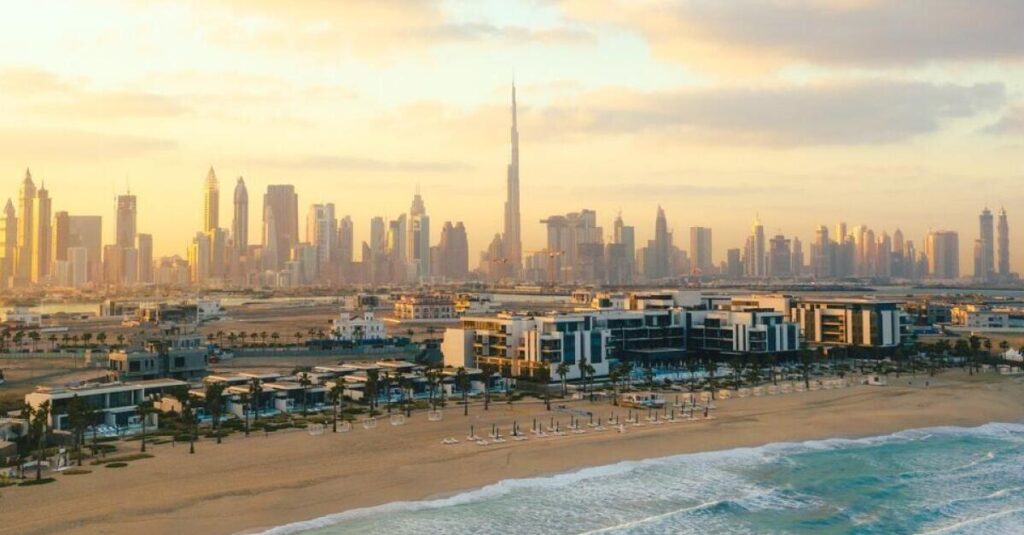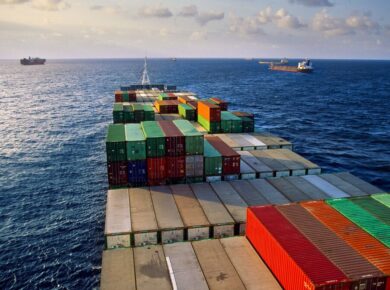Fast-tracking Emirates’ Economic Ambitions: Re-exports Key to UAE’s Success

The United Arab Emirates (UAE) recognizes the significant role re-exports can play in accelerating its economic ambitions. By leveraging the practice of re-exports, the UAE aims to enhance its position as a global trade hub and propel its economic growth.
Re-exports refer to the process of importing goods into a country and subsequently exporting them to other destinations without altering their nature or adding substantial value. This practice allows the UAE to capitalize on its strategic geographic location and world-class infrastructure to facilitate seamless trade between various regions.
One of the UAE’s key advantages is its strategic positioning as a gateway between East and West. Situated at the crossroads of major trade routes, the UAE serves as a vital connection point for goods moving between Asia, Europe, Africa, and beyond. This positioning enables the country to harness the potential of re-exports by efficiently facilitating trade flows and capitalizing on its logistical capabilities.
The UAE has developed state-of-the-art ports, airports, and free trade zones that streamline the movement of goods and enable efficient re-export processes. These infrastructure investments have transformed the UAE into a global trade hub, attracting multinational companies and businesses seeking to leverage its connectivity for their regional and international operations.
Re-exports play a crucial role in the UAE’s economic diversification efforts. While the country is known for its oil reserves, it has been actively pursuing strategies to reduce its dependence on hydrocarbons and promote a more diversified economy. By capitalizing on re-exports, the UAE can tap into a wide range of industries, including electronics, consumer goods, textiles, and more. This diversification not only strengthens the resilience of the UAE’s economy but also fosters innovation, job creation, and knowledge transfer.
Moreover, re-exports contribute significantly to the UAE’s trade volumes and overall economic growth. The country’s favorable business environment, low tax regime, and robust logistics infrastructure attract global businesses and investors who view the UAE as a gateway to emerging markets. By leveraging re-exports, the UAE serves as a facilitator, allowing businesses to access markets and customers across the globe efficiently.
The UAE’s ambitious economic vision, outlined in initiatives such as UAE Vision 2021 and UAE Centennial 2071, places a strong emphasis on leveraging its competitive advantages to become a knowledge-based, diversified economy. Re-exports align perfectly with this vision, as they leverage the UAE’s strengths in logistics, connectivity, and trade to drive economic growth and foster innovation.
In recent years, the UAE has made significant strides in enhancing its re-export capabilities. The country has implemented measures to streamline customs procedures, improve logistics infrastructure, and facilitate trade flows. These efforts have resulted in increased efficiency, reduced costs, and enhanced competitiveness, further solidifying the UAE’s position as a global re-export hub.
As the UAE looks to the future, the importance of re-exports in achieving its economic ambitions cannot be overstated. By capitalizing on its strategic advantages, fostering a business-friendly environment, and continuing to invest in world-class infrastructure, the UAE can position itself as a global leader in re-exports and further catalyze its economic growth.
The UAE’s commitment to diversification, innovation, and trade facilitation makes re-exports a critical component of its economic strategy. By harnessing the potential of re-exports, the UAE can unlock new opportunities, attract investment, and create sustainable economic growth, propelling the country towards achieving its ambitious economic goals and solidifying its position as a global economic powerhouse.





